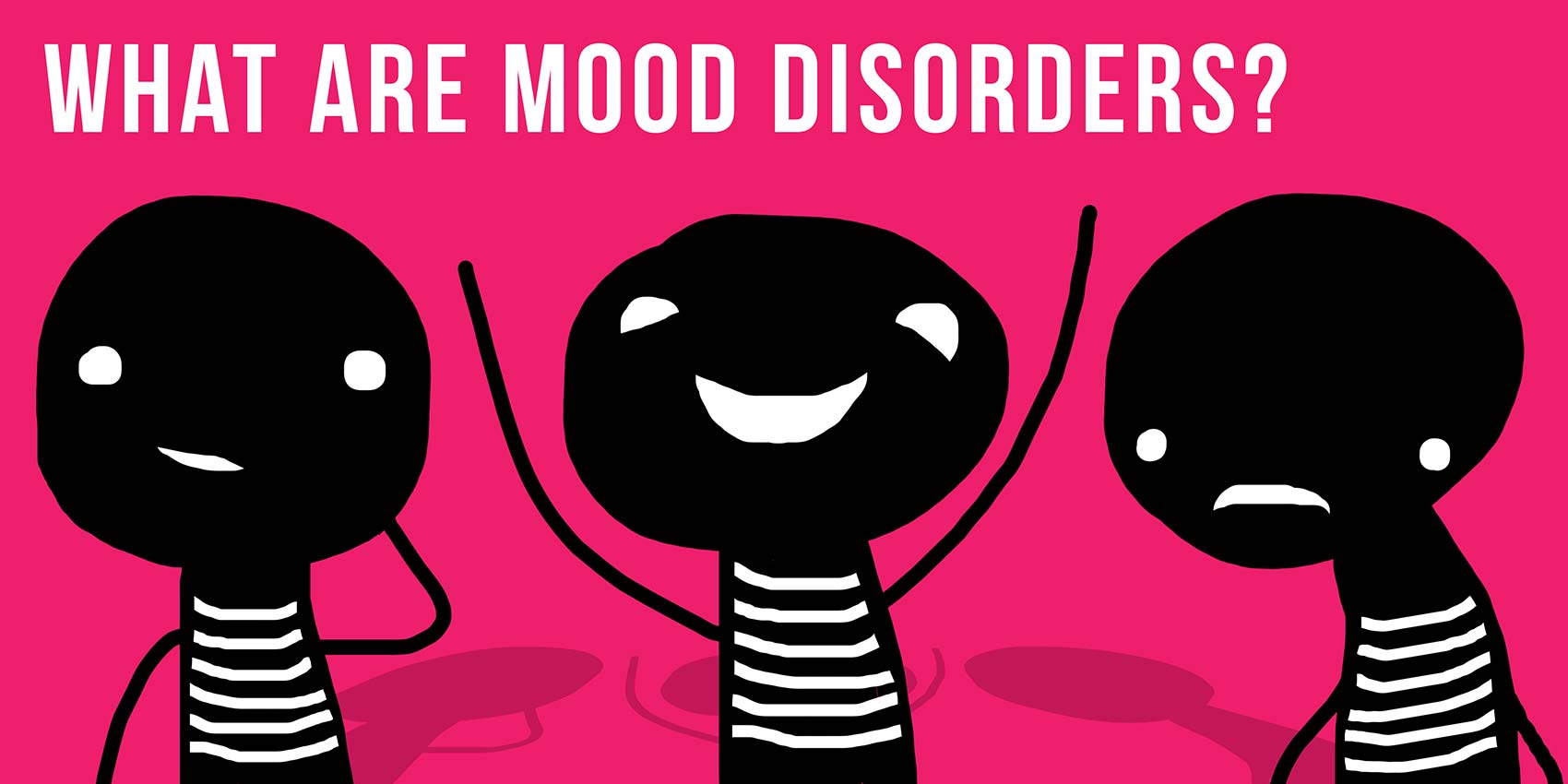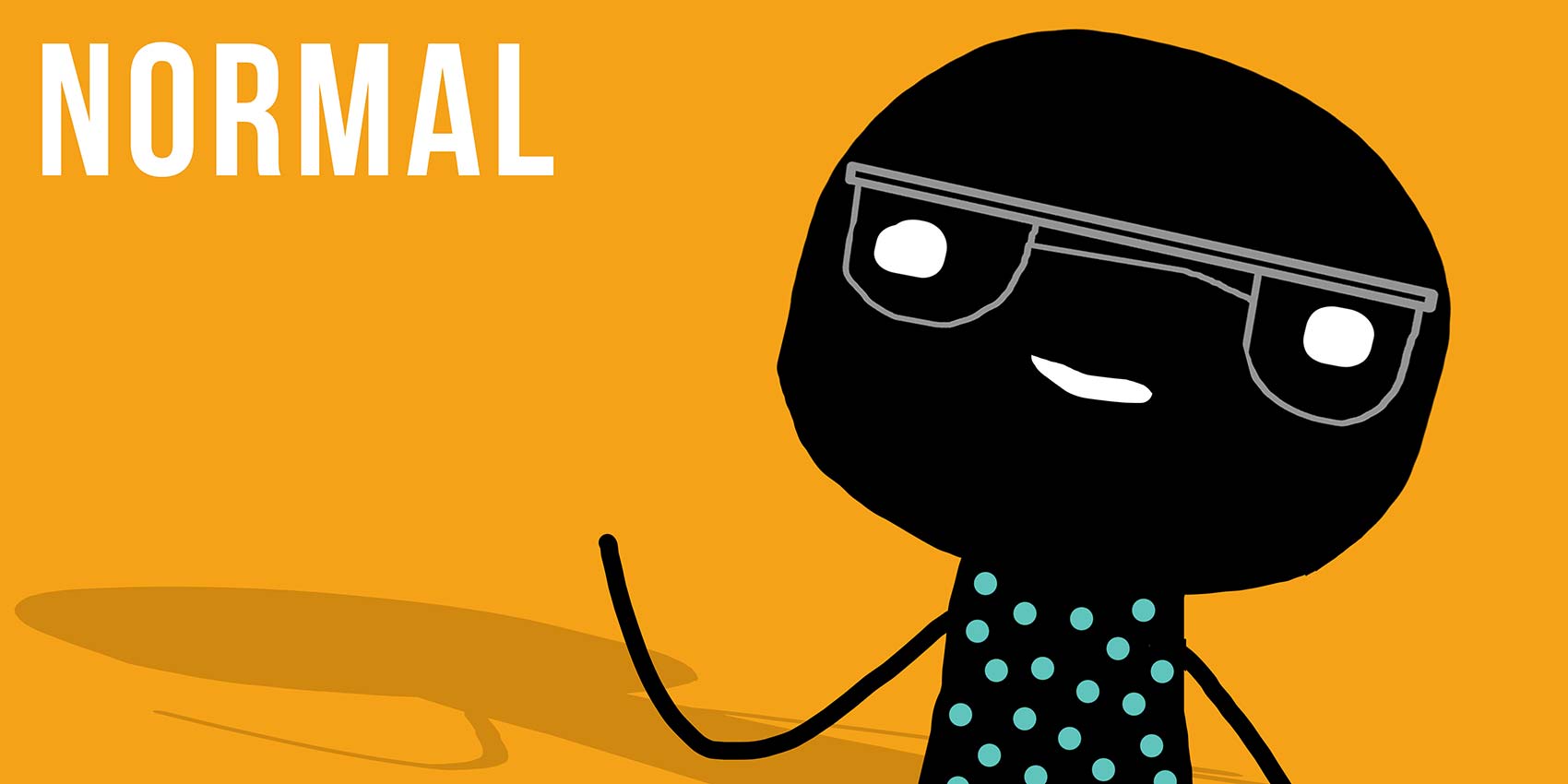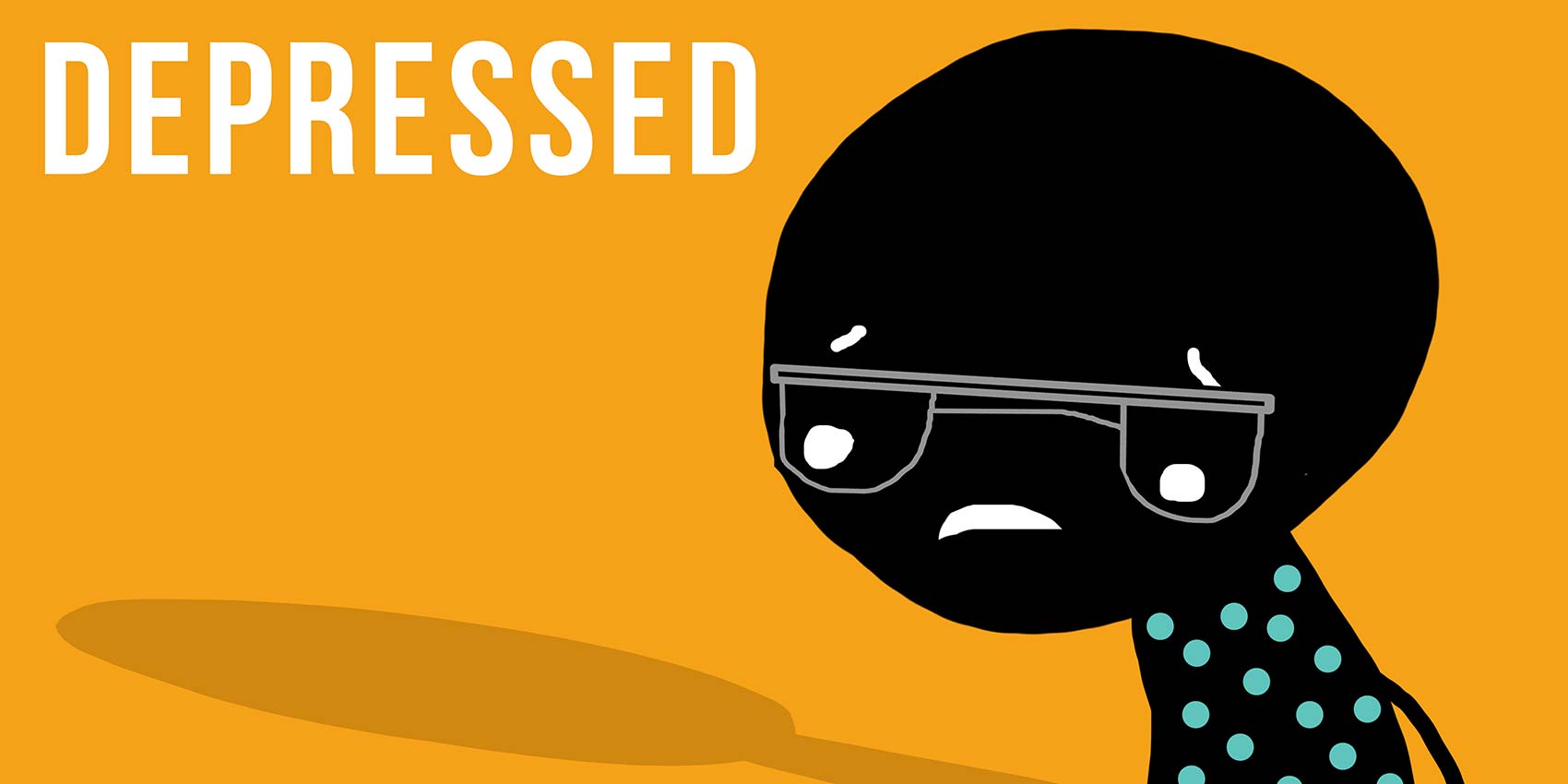27 Mar What are mood disorders?

Guess what the main feature is for mood disorders?

A fashion disaster?
Well, that might put you in a foul mood. But no, mood disorders are all about moods.

Three main types of mood exist:
- Normal
- Elevated
- Depressed

1. Normal: People who are considered to be “normal” feel in control of their moods, for the most part, and have a wide range of moods and affects. (Recall that an affect is the outward expression of a person’s internal mood/feeling/emotion.)

2. Elevated: People with elevated moods (mania) have seemingly hyperactive speech, ideas and behavior. They are sometimes described as “all over the map” with their thinking and talking – but not in a delusional way. (Recall that you learned what delusional means in the previous post. As a reminder, it means false beliefs, like thinking alien frogs are telling you to hiccup through the lunch line.) They also show decreased need for sleep, higher self-esteem and grand ideas that a normal person may

3. Depressed: In contrast to elevated moods, people who feel depressed have a loss of interest and energy. They may feel guilty or shameful, lose their appetite, have trouble concentrating and think about death.
What’s Going On?…
Mood disorders have different affects – elevated and depressed – associated with them. These are broken down into four main categories, called “episodes” (the period of time a person a person shows signs of the mood): Major Depressive Episode, Manic Episode, Mixed Episode, Hypomanic Episode.
Mood disorders are then differentiated by which episodes are present in the person.
Confused? First, read about the categories (episodes) of moods below. Then read about the disorders below that, and you will see that it is the episode that defines the disorder.
The Episodes…
Major Depressive Episode: includes feeling sad, blue, down, discouraged, hopeless, depressed and even angry (sometimes accompanied by angry outbursts). Other symptoms include loss of appetite, social withdrawal and trouble sleeping.
Manic Episode: Characterized by a distinct period of abnormally elevated, upbeat or even irritable mood. This mood must last at least one week. Several other criteria must be met as well, including inflated levels of self-esteem, decreased need for sleep, ideas that seem all over the map, and poor judgment. (Mania may include psychotic symptoms.)
Mixed Episode: As the name implies this is when someone has symptoms of both a Manic Episode and a Major Depressive Episode lasting for at least one week.
Hypomanic Episode: Similar to Manic Episode but the symptoms last less than a week and do not cause marked disturbance in social life or work (whereas Manic and Mixed do), however they seem strange and abnormal to other people.
The Disorders…
Now, here are the most commonly diagnosed and discussed mood disorders and the episodes that define each:
Major Depressive Disorder: Characterized (hey, you guessed it) by at least one Major Depressive Episode without a history of Manic, Mixed or Hypomanic Episodes.
Bipolar Disorders: People with both Manic and Depressive episodes fall into the category of Bipolar Disorders. There are two Bipolar Disorders: 1 and 2. Bipolar 1 involves Manic and Depressive Episodes, while Bipolar 2 involves Hypomanic and Depressive Episodes.
Teen Reality Check…
The teen years are practically defined by mood swings! Many teens feel up and down with their moods. Do you? This does not mean you have a mood disorder. It likely means you are a normal teen with lots of hormones swirling around your body. Remember, disorders are characterized by an inability to function in work, relationships or to take good care of yourself – over a period of time. Your “depressed” mood is normal after experiencing something sad such as losing a pet. However, still hiding in your room with the blinds drawn two months later is not normal. If you have any doubts about whether or not you might be suffering from a Mood Disorder, seek help from a trusted adult!




Post Question:
Do you know anyone with a Mood Disorder? How are you affected by it?
Answer the post question here
What's being said